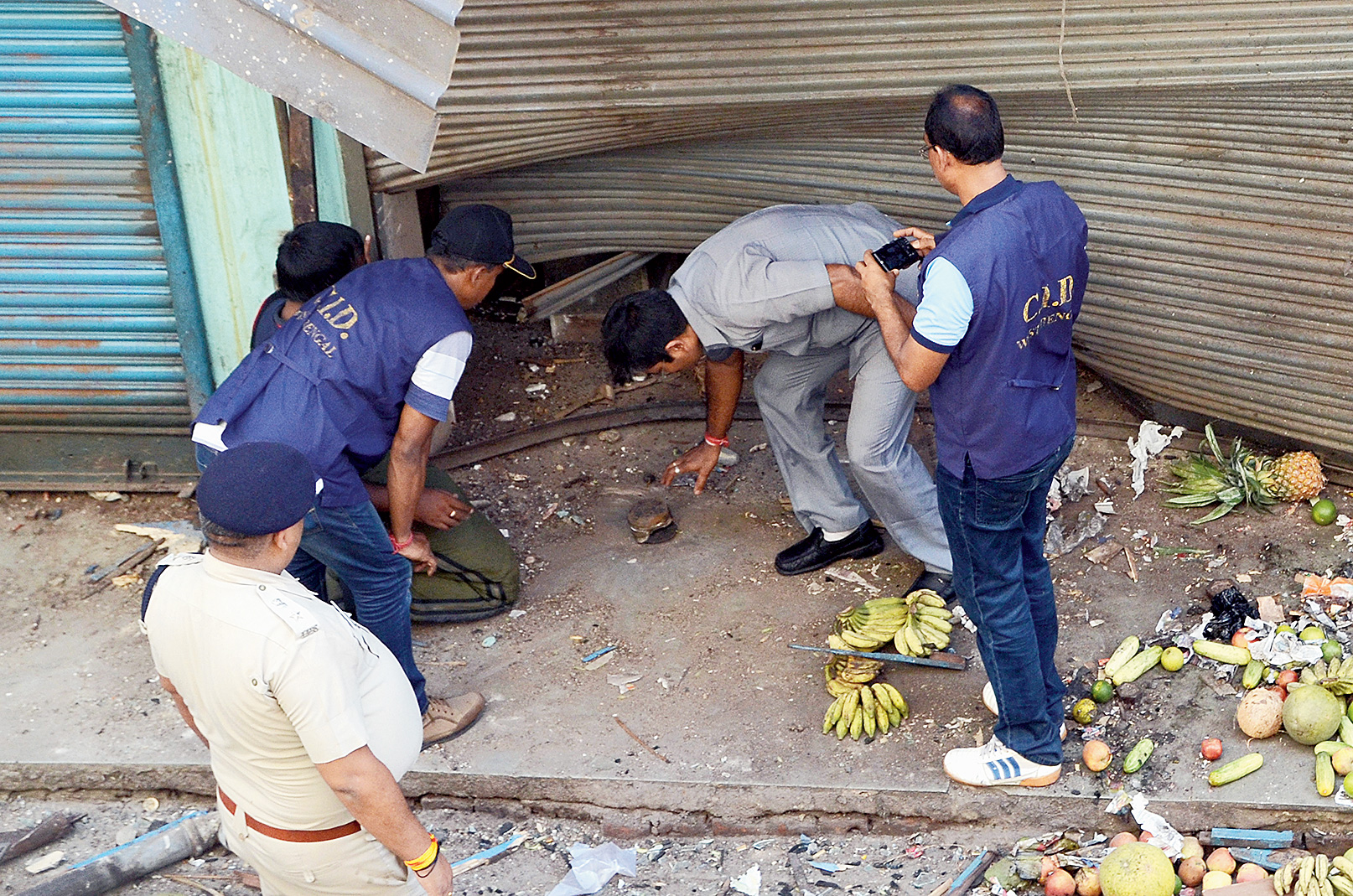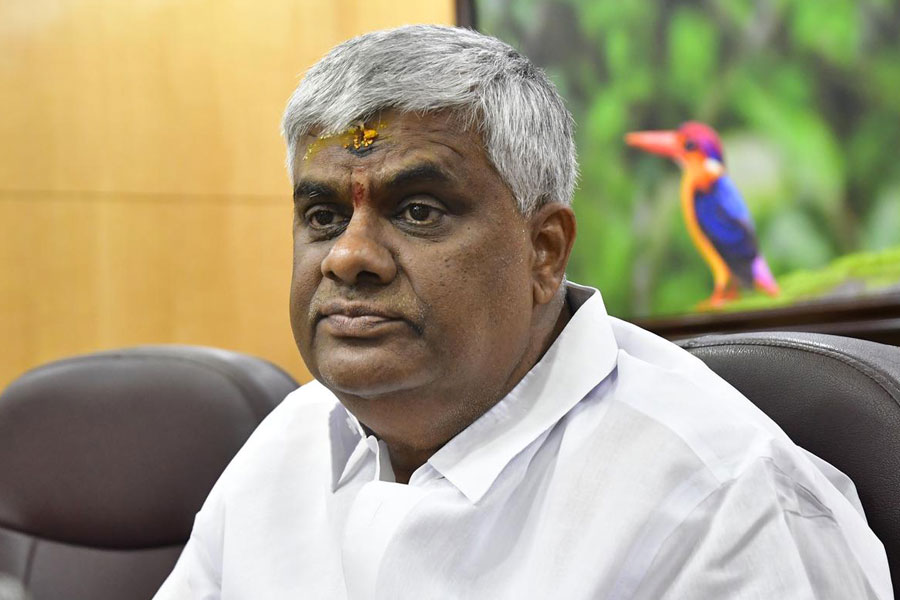If investigations eventually establish the Trinamul Congress theory that the RSS was behind the blast in Nagerbazar that killed a child, it will not only surprise the neighbourhood but also raise several uncomfortable questions for the ruling party.
Surprise because few residents and political players have so far noticed any renewed Sangh activity in the bustling neighbourhood after the spectacular rise of Trinamul.
Disquieting questions because Trinamul enjoys near-total hegemony over the territory considered lucrative because of robust construction. The competition for spoils is so stiff that several Trinamul factions are said to vie with each other relentlessly for control, stirring questions on how the Sangh managed to infiltrate such a prized turf under the nose of the multiple power centres.
“It looks like the handiwork of the BJP-RSS. They have no presence in people’s hearts but have been trying to claw their way back into Dum Dum,” said minister Jyotipriya Mullick, Trinamul’s North 24-Parganas president.
Even before the BJP could formally retaliate — the RSS described the charge as “meaningless talk”— sources in Trinamul had expressed surprise in private at the choice of the prime suspect.
The Trinamul hegemony in the area is so palpable that even everyday aspects of life — ranging from flower shows to swimming competitions and theatre fests to food fiestas — have the ruling party’s imprint on them, with MPs, ministers, MLAs and councillors attending even the most modest of the events.
“Party society”, a concept often referred to as the reason behind the Left’s success in beating the anti-incumbency for over three decades, has been firmly established by Trinamul in the area. South Dum Dum has 32 councillors, three MLAs and several MPs active in the area.
Dum Dum, North Dum Dum and South Dum Dum used to be Left bastions for decades, and CPM strongmen Subhas Chakraborty and Amitava Nandy used to call the shots in the area.
“Now, it’s all Trinamul,” said a ruling party insider. “But the area has become a chronic headache for the leadership because of infighting…. It is a small pond with many big fish and problems between them have become regular,” he added.
Several Trinamul figures, such as ministers Bratya Basu and Purnendu Bose, MLAs Sujit Bose and Sabyasachi Dutta, Rajya Sabha MP Dola Sen and Lok Sabha MP Saugata Roy, are politically active in the area, characterised by overlapping constituencies.
The civic bodies, their chairmen — like Panchu Ray who has identified himself as the possible target of the blast — and councillors are also no pushover.
BJP state chief Dilip Ghosh wondered how his party and the RSS could be blamed for the blast. He alleged Naxalite links to the incident, pointing to the former Naxalite leanings of some Trinamul leaders.
While Trinamul sources conceded that a turf war was on in the area, they said they were clueless about how the blast could be linked to it.
A Trinamul insider said turf wars often break out between supporters of various lobbies over the control of cartels supplying construction materials, known as syndicates.
In recent memory, Trinamul workers close to an MLA had clashed with supporters of a civic body chief on several occasions. Vast stretches of Dum Dum and New Town in North 24-Parganas have been witnessing a realty boom and have become happy hunting grounds for the syndicates.
Six months ago, an attempt was made to assault a Trinamul leader on R.N. Guha Road shortly after he was sucked into a controversy over the sharing of spoils linked to a multi-storeyed residential building in Motijheel, Dum Dum.
The leader, who had managed to flee then, told The Telegraph on Tuesday: “Yes, I was attacked, but I don’t want to speak about it.”
An official of the Barrackpore commissionerate said they had to often break up fights among members of the syndicates active in Dum Dum but, in most cases, no complaints were filed.
“We rarely get complaints and we can do little as there is pressure,” he added.










